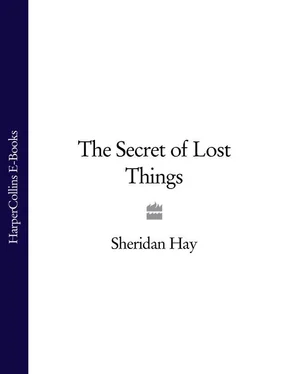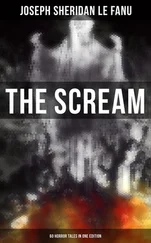Mother’s ashes were covered in an orange scarf at the bottom of a carry-on I was reluctant to put down.
My arrival was not auspicious. The rain continued, veiling the city, and when the taxi I took from the airport tried to deposit me in front of the residential hotel Chaps had booked, it appeared to no longer be in business. I couldn’t have known it, but I had arrived in the final year of a difficult decade for the city. New York itself was stirring from years of financial hardship, and many inexpensive hotels then housed residents permanently courtesy of the state.
Terrified, I agreed to an additional fare and the driver took me further downtown to a hotel he knew was cheap and, he said, safe. The Martha Washington Hotel for Women had a dingier address (29 East Twenty-ninth Street or 30 East Thirtieth street, depending on the entrance), but it was open, with a room vacant at the right price. There was little evidence that it had once been an impressive establishment, even prosperous, with many rooms. Built in 1902, the hotel was now dilapidated. More than seven decades after it opened, the upper floors were closed off for repairs that would never eventuate. The restaurant had been shuttered for thirty years.
A woman sat behind the battered reception counter watching a tiny black-and-white television, connected by twin earplugs. She was striking and dark, about sixty, with aristocratic features. After I had her attention, she explained the hotel requirements in heavily accented English: payment a week in advance, linens changed once a week, no guests in the rooms, no smoking, no cooking, no noise.
I had no intention of breaking any rules. I was barely eighteen years old, absent Mother and country, soaking wet, and so bereft that I sagged inside my damp clothes, shrunken and childlike.
I paid the taxi driver, handed over one week’s rent and staggered to my room at the end of a shadowy corridor. I took the Huon box from my bag and placed it beside my pillow.
“Come back,” I said aloud to Mother, my voice thin and trembling. “Come to me here.”
It was hours before I slept, kept awake by sadness, by anxiety, and by cars passing on the avenue, their headlights flashing in the room like counterfeit lightning, tires plashing into potholes where rainwater pooled.
A hot June sun appeared the following day, the weather surprisingly steamy. I spent that early summer week trying to stay out of the dun-colored room as much as possible. The room was fetid by early afternoon. A single, clouded window, with bars across it, faced the bed. I had to keep the window closed against the street noise and also because this wing of the Martha Washington was downwind from an Indian restaurant on the next block.
At first, I shared a grubby bathroom with two women along the same corridor, although they might as well have been phantoms. They banged around slamming doors and drawers, but I never once saw either of them except from behind—in retreat. They soon disappeared altogether, a fate I feared awaited every fresh arrival to the city. If I sat in the room during hot daylight hours I felt I had been sealed into my predicament, held inside a shrinking box, with no escape but sleep. I woke early, claimed the bathroom first, and promptly ventured out. My life depended on it.
The dark lady of the reception desk appeared to live at the Martha Washington. I heard her speak Spanish to a stern man I gathered was the owner, and I called hello to her each day as I left to investigate the city, as much to speak aloud as politeness. But after several days without acknowledgment, I stopped. She was either too intent on the television or hard of hearing. Or perhaps she simply didn’t care to answer.
The labyrinthine city waited. It anticipated me. I was swallowed whole, surrounded by a populace buzzing and purposeful, a remedy for grief and a goad to it. I was utterly alone, and lived at first without the imposition of order, too scattered and overwhelmed to effect any. I recognized no vista. No building was familiar, apart from the iconic Empire State and the Chrysler (motifs of my scrapbook), but even those were unrecognizable from my altered perspective on the ground. I forgot to eat, and an entire day would pass before I spoke out loud. Even then it might just be an acknowledgment of thanks, or a plain request: “Could I have milk in my tea, please?” My own voice was alien and took my ear strangely. No one addressed me, no one knew my name, and my anonymity was at times a raw joy in my chest, freedom at its most literal, while at others, a source of paralyzing fear. I didn’t know then that this was how deep emotion most often comes, from opposite directions and at once, when you are least aware and farthest from yourself.
I did know profound dislocation, and had to remind myself that the young woman I caught sight of in store windows was me. She had no family. No one expected her home. Yet she existed. There she was reflected in the glass, her wild red hair on end as if with fright.
I needed money and I needed work. I had to know who I might become. I walked and walked around the immediate neighborhood, tracing a large circle, the Martha Washington and Twenty-ninth Street the fixed foot of my compass. I was searching for something I recognized, apart from what I found in my own face, for a sense of the familiar in the unaccustomed.
By odd happenstance I had landed at the eastern edge of New York’s garment district. The streets surrounding the Martha Washington were known for their small accessory suppliers, and tiny storefronts displayed crowded windows full of hats and caps, wigs and handbags, sparkling appliqués and notions of all kinds. It was as if Mother had herself selected the location of my first residence without her. There was a looking-glass quality, almost antipodean, to my immediate location. Mother and Remarkable Hats, the Foys workroom, were far away on the other side of all things, and yet in New York I was surrounded by their emblems.
I ventured farther downtown and actually walked passed the Arcade on several occasions without realizing what it was—the largest used-book store in the city. I hadn’t heard of its reputation for housing lost things: books once possessed and missed or never possessed and longed for. I hadn’t read Herman Melville; only his famous name was familiar (just another on the rather limited stock list at Chapman’s Bookshop). And I knew nothing whatsoever of the value of rare manuscripts. I fancied bookstores were generally similar to each other, in their way. But the Arcade was of an altogether different order; and because then I was in every sense lost, once I was inside, it proved irresistible.
The Arcade’s charm is oddly absolute, but that day it was also intensely personal. Walking into the store, I had walked into an image from my postcard collection, into a picture pasted in my scrapbook. I was inhabiting space I thought imaginary. In this way, I had the distinct impression that I had conjured the Arcade up, had made it appear, a whole cloth woven from unexpressed need.
From the unimpressive entrance, the ceiling rises in an enormous curve toward the rear of the store, a sweep of space that lifts one’s eyes upward in search of another firmament. Of course, there isn’t one; the ceiling is just a deep, dusty dome, like the inside of a skull. (Both are vaults, both repositories of knowledge). How could so slight a portal reveal so impressive a space? It occurred to me that I had been tricked into entering.
Understand, the Arcade is itself a city; itself an island. That bookstores are such places is always hoped for, but the Arcade is like the original wish behind such hopes. In that first visit New York was made actual. The Arcade was population, mass, was the accomplishment of a city. Books were stacked like the teeming New Yorkers, invisible inside their buildings, but sensed as bees in a hive. The hum of life issuing from the crowds that filled the city I had begun to experience, but in the Arcade that buzzing life was made calculable in things. Chaps always told Mother and me books were minds on the shelf. Here it was true: books didn’t seem inanimate; a kind of life rose from the piles heaped on tables before me.
Читать дальше












